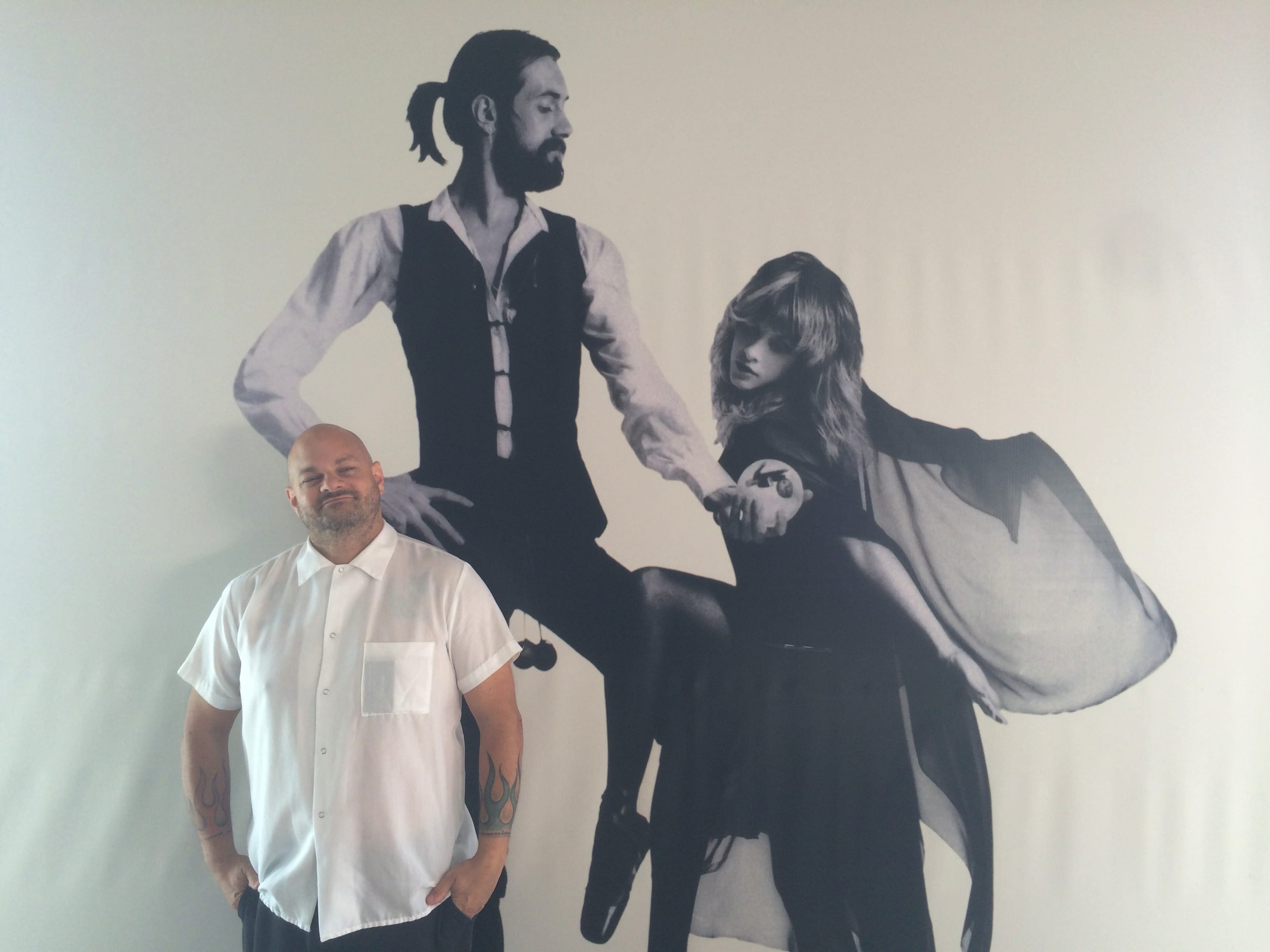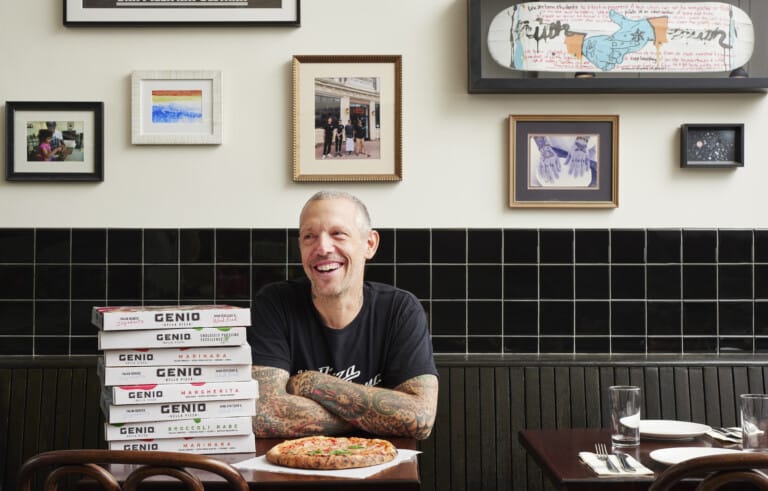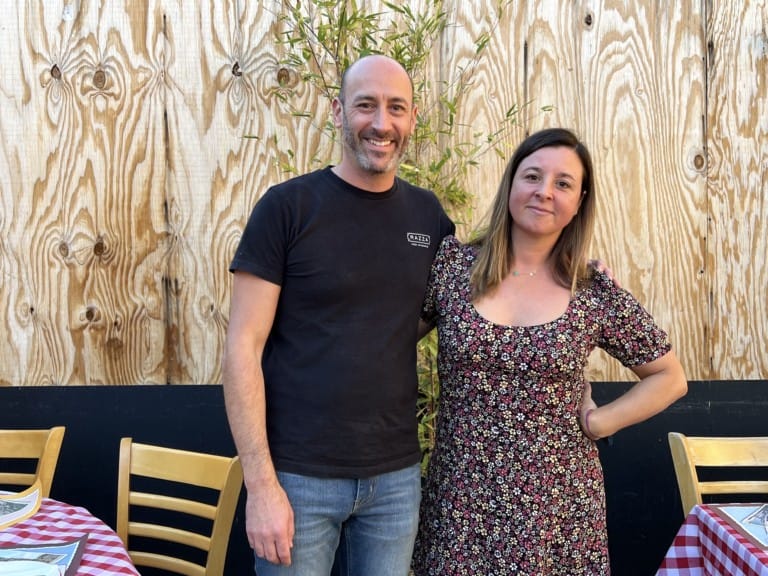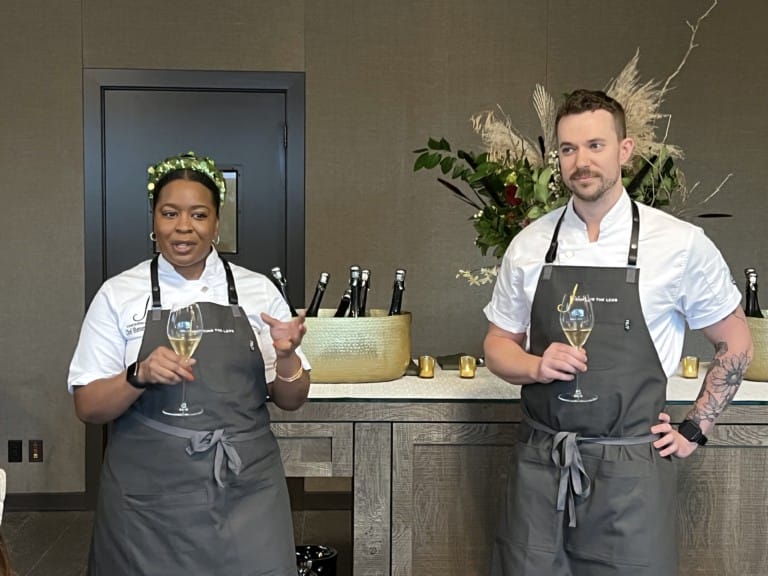INTERVIEW CONTINUED FROM PREVIOUS PAGE
JL: What was your first night like cooking in a professional kitchen? I guess it was your family’s kitchen.
JT: We won’t call my family’s kitchen professional, because I was working for my dad. I knew everyone who already worked there, so it felt like family more than anything else. Don’t get me wrong, it was hard. The first kitchen I worked in was for Wolfgang [Puck], and it was kind of a nightmare. I moved to California to work at Granita in Malibu. This was a long time ago. This was 17 years ago. I questioned whether I made the right decision for the first six months I worked there. It was really a difficult, harrowing experience, and then I got the hang of it. It wasn’t easy, but way easier. Then I could just learn and get better. I felt comfortable, but the first six months were really bad. I felt bad for my chef.
JL: Who was the chef?
JT: Her name is Jen Naylor. She does catering in Malibu now. She worked there for so long, she knows everybody, and she’s doing fantastic.
JL: Considering that we have the Fried Chicken Festival coming up, what’s the key to a great fried chicken?
JT: For me, the key to great fried chicken…usually, when we’re asked what the key to any dish is, you’re usually going to say, “It’s getting the best possible product,” but with fried chicken, I don’t know if that’s even necessary… The most important thing for me; we don’t brine our chickens and we don’t dip them in liquid. We just salt them. For me, that is the key. To me, buttermilk is a misnomer for fried chicken. I just don’t think it does anything to it, but a lot of Southerners swear by it. I’m not from the South, but I feel like I make really good fried chicken.
JL: Who else in the restaurant industry do you look to for inspiration, guidance or advice?
JT: I don’t get out too much anymore, because I’m married with children and running two restaurants. I don’t really get to hang out with people, but I always like getting to talk to Gino Angelini. I worked for him a long time ago. He’s just an incredibly down to earth person. He seemingly always knows what to say. As long as you can understand him. He can be difficult to understand. He’s just one of those guys I always talk to if I’m having an issue.
JL: What’s been useful in managing multiple projects at once?
JT: The only way you can manage multiple projects at once is great people. My chef, Josh [Rabbie], at Littlefork, is great. He works really hard. He does a great job. I basically go in for menu tastings, give him my notes, go back. He’s adjusted the dishes, and we just make sure staff is trained properly. It’s been great. I wouldn’t be able to do this if I didn’t have someone who was really good at Littlefork. It’s the same here. I know I can step away because my sous chefs here are fantastic. They might not be able to do it if it’s just one of them, because Food & Bread is a really large project with a lot of moving pieces, and thankfully we’ve been busy. Together, they do a really amazing job.
JL: What will it take for you to consider your work in restaurants a success, if it isn’t already?
JT: That’s an interesting question, because success can mean a myriad of things in the restaurant business. I’m sure a lot of people say, “We get a lot of celebrities. We’re a success.” Or you’re a financial success. For me, all I really want is neighborhood restaurants. I’m not that type of guy, I don’t really want a fancy restaurant. I’m not necessarily looking to have a restaurant that people are coming to from all over the country. I had that at Fraiche, but that’s not what we opened it as. We opened it as a neighborhood restaurant that was a relatively inexpensive place to go for people to get high-quality food. That’s what we’re trying to do here as well. If people are coming, and the neighborhood is happy with us, then that’s a success for me. So far, this has been really good. Hopefully it just continues to grow. Paul [Hibler], the owner, has a lot of ideas about how he wants to grow this brand. We’ll see if any of them come to fruition…We have a lot of talent, between Jon Eng, the baker, and Lincoln Carson, the pastry chef, and the guys I have in the kitchen, we can really branch out. We can tackle a lot of different things. We’re really fortunate, and it’s been an amazing opportunity.
JL: What would you like to be known for as a chef?
JT: I don’t really think about that. I’m singularly focused. I’m a guy who throws my head down and I work. I don’t really worry about what other people think. I stopped reading a lot of food blogs and magazines – not that magazines exist anymore – I took all those away just to focus on what I want to do, rather than be focused on other people. I remember I made one dish, and one of my servers said, “That looks like a dish I had over here.” You just wonder how much of that was either you going out to eat, you reading about it in some blog or magazine, or a myriad of other reasons. For me, I shut as much of that out as possible. I’m never going to stop going out to eat. A) because it’s fun B) because it’s an easy way to see my friends C) because you learn. That will always be an influence, but I try to limit all the other ones.









Leave a Comment